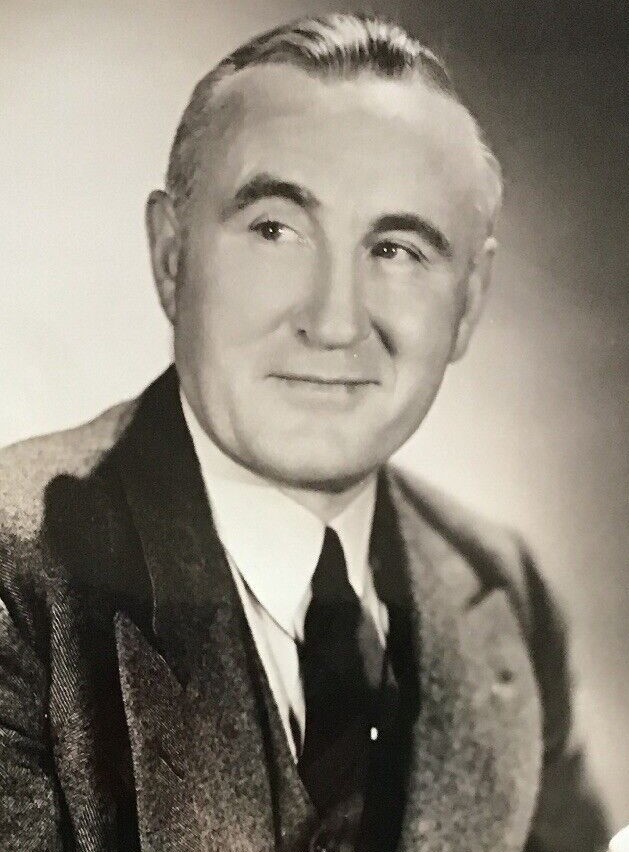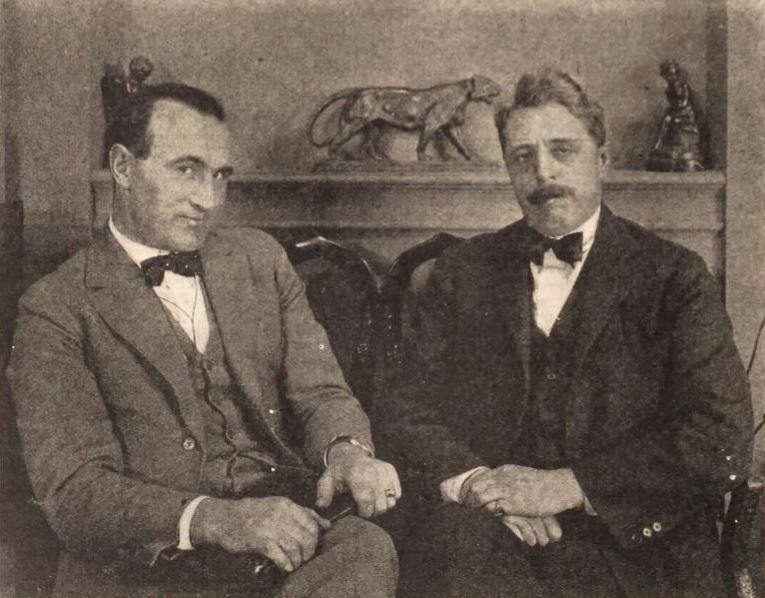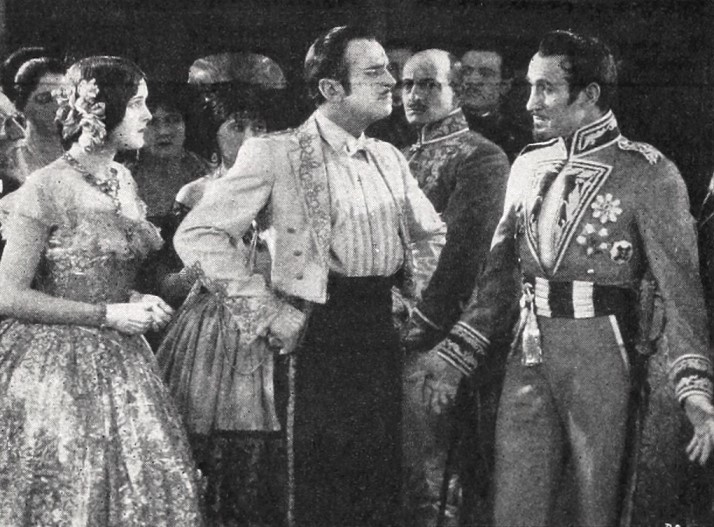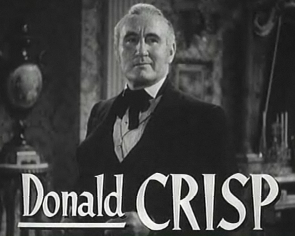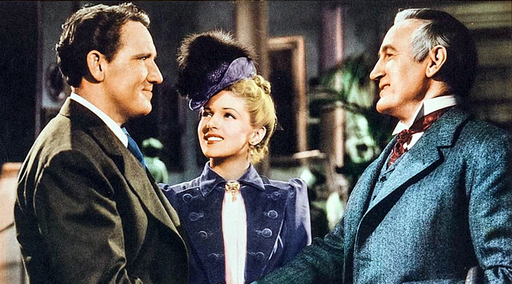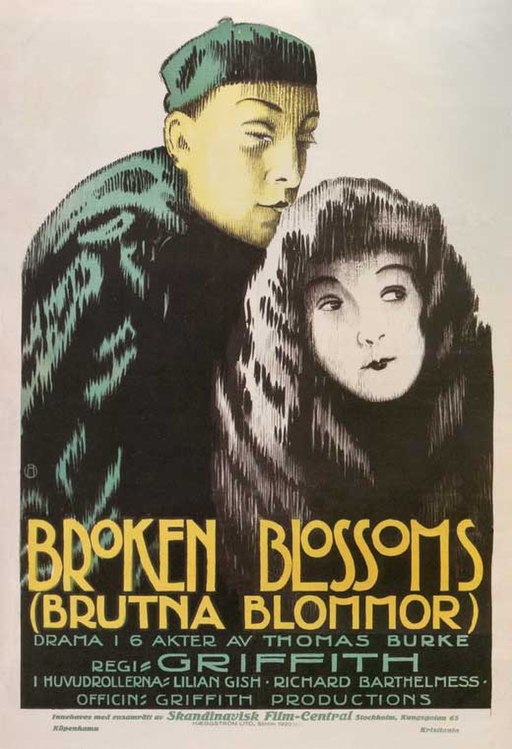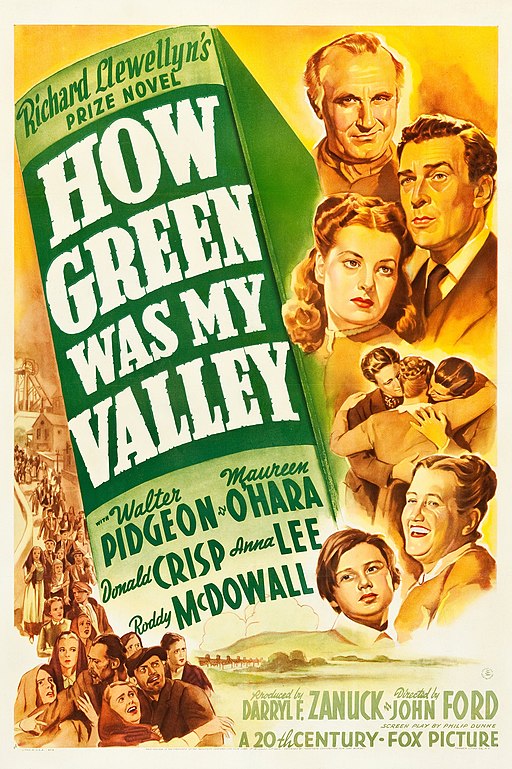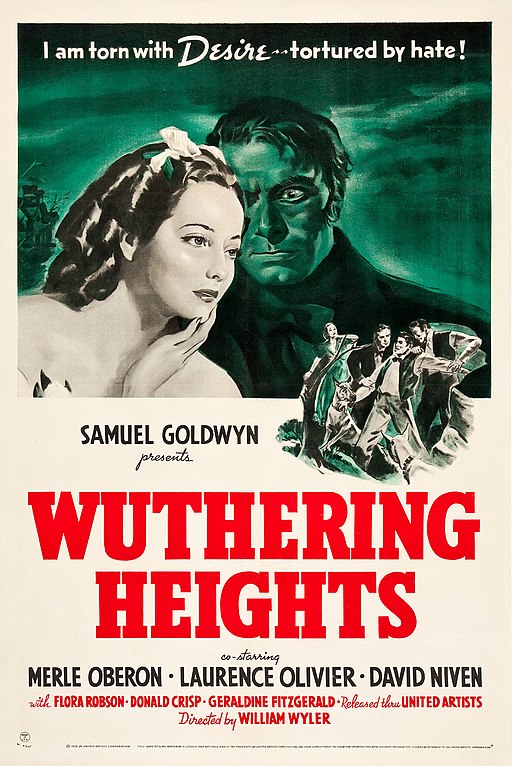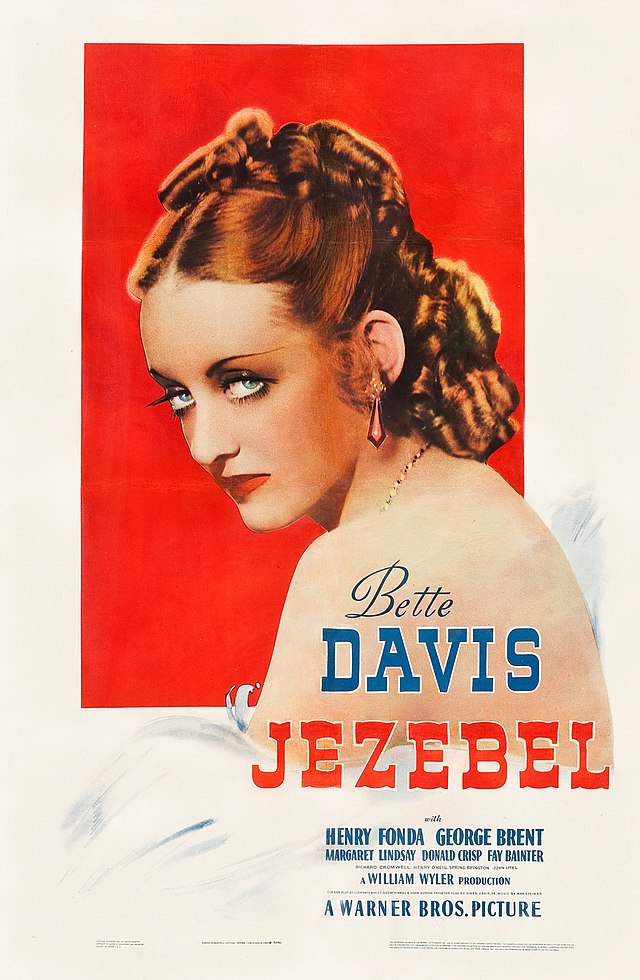Donald Crisp
back| Full Name | George William Crisp |
| Stage Name | Donald Crisp |
| Born | July 27, 1882 |
| Birthplace | London, England, United Kingdom |
| Died | May 25, 1974 |
| Buried | Forest Lawn Memorial Park, Glendale, California, USA |
| Married to | Marie Stark (1918 – 1919) – Jane Murfin (1932 -1944) |
| Children | Not known |
| Notable films | Broken Blossoms (1919) - How Green Was My Valley (1941) - The Birth of a Nation (1915) - Dr. Jekyll and Mr. Hide (1941) - Lassie Come Home (1943) |
Donald Crisp
The Distinguished Actor
Donald Crisp was a versatile actor known for his authoritative presence and ability to play both sympathetic and complex characters. Starting his career in silent films, he transitioned successfully to sound films, becoming one of Hollywood's most respected character actors.
Beyond acting, Crisp also worked as a director and producer in the early days of his career, contributing to over 100 films in various capacities. His legacy in the film industry is marked by his memorable performances and the respect he earned from peers and audiences alike.
Related
Donald Crisp (1882 - 1974)
Biography and Career Overview
Donald Crisp was a distinguished British-American actor, director, and producer, whose career spanned from the silent era into the golden age of Hollywood. Born George William Crisp on July 27, 1882, in London, England, he embarked on a journey that would see him become one of the most respected figures in cinema history. Crisp's early life was marked by a sense of adventure and a quest for new opportunities, which eventually led him across the Atlantic to the United States.
Early Years and Career Beginnings Crisp's initial foray into the world of entertainment was not in film but on the stage, where he honed his acting skills. His transition to the burgeoning film industry came at the dawn of the 20th century, where he found work as an actor, director, and screenwriter. Crisp's early film career was closely associated with pioneering director D.W. Griffith, contributing to several of Griffith's epic silent films, including "The Birth of a Nation" (1915) and "Intolerance" (1916). His versatility allowed him to take on various roles, showcasing a remarkable range of characters.
Path to Success As the film industry evolved, so did Crisp's career. He made a successful transition to sound films, a period during which he delivered some of his most memorable performances. His portrayal of Gwilym Morgan in "How Green Was My Valley" (1941) earned him an Academy Award for Best Supporting Actor, cementing his legacy in Hollywood. Crisp was known for his authoritative screen presence and was often cast in roles that required a strong, paternal figure, contributing to over 100 films throughout his career.
Passions and Interests Beyond his work in film, Crisp had interests and passions that occupied his time. However, specific hobbies or pursuits that he was passionate about are not widely documented, leaving this aspect of his life a mystery to his fans and historians alike.
Death and Legacy Donald Crisp passed away on May 25, 1974, in Van Nuys, California, at the age of 91. His death marked the end of an era for Hollywood, closing the chapter on a career that had significantly impacted the film industry. He was buried in Forest Lawn Memorial Park in Glendale, California, a final resting place for many of Hollywood's elite. The cause of his death, attributed to natural causes related to his advanced age, brought to a close the life of a man who had seen and contributed to the dramatic transformations in the world of cinema.
Short Video Bio on Donald Crisp:
Memorable Movies featuring Donald Crisp:
Silent Era Highlights
- "The Birth of a Nation" (1915): Directed by D.W. Griffith, this controversial silent film depicted the Civil War and its aftermath, with Crisp playing the role of General Ulysses S. Grant. The film is known for its groundbreaking cinematic techniques and its controversial portrayal of race and history.
- "Broken Blossoms" (1919): Another Griffith film where Crisp plays Battling Burrows, an abusive father in a tragic tale of love and loss between a young girl and a Chinese immigrant in London.
Transition to Sound and Notable Performances
- "The Navigator" (1924): Directed by Buster Keaton and Donald Crisp, this comedy showcases Crisp's early involvement behind the camera, contributing to the Golden Age of silent comedy.
- "How Green Was My Valley" (1941): Directed by John Ford, this film about a Welsh mining family features Crisp as the patriarch, Gwilym Morgan. His performance earned him an Academy Award for Best Supporting Actor.
- "Dr. Jekyll and Mr. Hyde" (1941): Crisp plays Sir Charles Emery in this horror classic, showcasing his versatility as an actor in a tale of dual personalities.
- "Lassie Come Home" (1943): A heartwarming story where Crisp plays Sam Carraclough, a father forced to sell his son's beloved dog due to financial hardship.
Later Career Highlights
- "National Velvet" (1944): In this family drama, Crisp plays Mr. Brown, a butcher who becomes a pivotal figure in a young girl's dream to race her horse in the Grand National.
- "The Uninvited" (1944): A classic ghost story where Crisp plays Commander Beech, providing a solid performance in one of the first Hollywood films to deal with supernatural themes seriously.
His Acting Style:
Donald Crisp's acting style was emblematic of the transition from the theatricality of the silent film era to the more nuanced performances demanded by the advent of sound in cinema. His career spanned this significant evolution in filmmaking, allowing him to develop a remarkably adaptable acting style that could convey depth and emotion both with and without the benefit of dialogue. Here are key elements that characterized his performances:
Expressive Physicality
In the silent film era, Crisp mastered the art of conveying complex emotions and narratives through physical expression alone. His performances were marked by a keen use of body language and facial expressions, a necessity in silent films where gestures and expressions had to substitute for spoken words. This ability to communicate non-verbally added a rich layer to his later work in sound films, where he combined physical expressiveness with vocal performances for greater emotional impact.
Commanding Screen Presence
Crisp had a natural authority and gravitas that made him particularly suited to roles of leadership or paternal figures. Whether playing a ship captain, a family patriarch, or a historical figure, he brought a sense of dignity and integrity to his characters. This commanding presence was rooted not in overt dominance but in a nuanced portrayal of strength and vulnerability, making his characters relatable and human.
Emotional Depth and Versatility
Crisp's performances were characterized by a remarkable emotional depth. He had the ability to convey a wide range of emotions, from sternness and anger to warmth and tenderness, often within the same role. This emotional versatility allowed him to move seamlessly between genres, from dramas and romances to westerns and comedies, always bringing depth and complexity to his characters.
Subtlety and Restraint
As film acting evolved, Crisp adapted by embracing a more subdued and naturalistic style. His performances in sound films often showcased a remarkable restraint, avoiding over-dramatization in favor of more subtle, realistic portrayals. This understated approach allowed him to steal scenes even in supporting roles, drawing audiences into his character's inner world without the need for grandiose gestures or speech.
Mastery of Accent and Speech
Crisp's British background contributed to his precise diction and mastery of accents, which he adeptly modified to suit various characters, from American frontiersmen to British aristocrats. His voice, with its distinctive timbre, added an additional layer to his performances, conveying authority, warmth, or weariness as the role demanded.
Donald Crisp's acting style was a study in the balance between the silent era's expressiveness and the sound era's demand for verbal nuance and subtlety. His ability to evolve while maintaining the core elements of his craft—expressiveness, authority, emotional depth, restraint, and vocal mastery—made him a versatile and enduring figure in the history of cinema. His performances remain a testament to the art of acting across the changing landscapes of Hollywood's golden years.
Awards and Recognition:
Donald Crisp's career, spanning several decades and encompassing both the silent and sound eras of Hollywood, was marked by critical acclaim and recognition. However, his awards and nominations were relatively modest in number, reflecting the era's limited number of formal accolades compared to today's extensive array of film awards. The pinnacle of his recognition came from the Academy Awards, a testament to his impact and talent in the film industry.
Academy Awards
- 1942: Donald Crisp won the Academy Award for Best Supporting Actor for his role as Gwilym Morgan in "How Green Was My Valley," directed by John Ford. This film, a poignant portrayal of a Welsh mining family's struggles and triumphs, showcased Crisp's powerful performance as the family patriarch. His portrayal earned him the Oscar in recognition of his ability to convey deep emotional resonance and strength, marking the highest point of his career in terms of industry recognition.
Other Honors and Recognitions
Beyond his Oscar win, there is limited public record of other formal nominations or awards for Donald Crisp. This scarcity is partly due to the historical context of his career; many of the film awards and festivals that are prominent today did not exist during his most active years. However, his contributions were recognized in other ways, including:
- Honorary Awards and Tributes: While specific honorary awards or tributes directed towards Crisp might not be widely documented, his legacy is honored through retrospectives and acknowledgments of his work in film history and cinema studies.
- Star on the Hollywood Walk of Fame: Donald Crisp has been commemorated with a star on the Hollywood Walk of Fame for his contributions to the motion picture industry, recognizing his extensive career and impact on Hollywood.
List of Notable Movies with Donald Crisp:
Silent Era (Selected)
- The Birth of a Nation (1915)
- Intolerance (1916)
- Broken Blossoms (1919)
- The Black Pirate (1926)
Transition to Sound and Major Roles
- The Viking (1928)
- Svengali (1931)
- The Private Life of Henry VIII (1933)
- Mutiny on the Bounty (1935)
- Lloyds of London (1936)
- Jezebel (1938)
Peak Career Years
- Dr. Jekyll and Mr. Hyde (1941)
- How Green Was My Valley (1941) - Academy Award for Best Supporting Actor
- The Gay Sisters (1942)
- Lassie Come Home (1943)
- The Uninvited (1944)
- National Velvet (1944)
- The Valley of Decision (1945)
Later Career Highlights
- Ramrod (1947)
- Bright Victory (1951)
- The Man from Laramie (1955)
- Pollyanna (1960)
- Greyfriars Bobby (1961)

